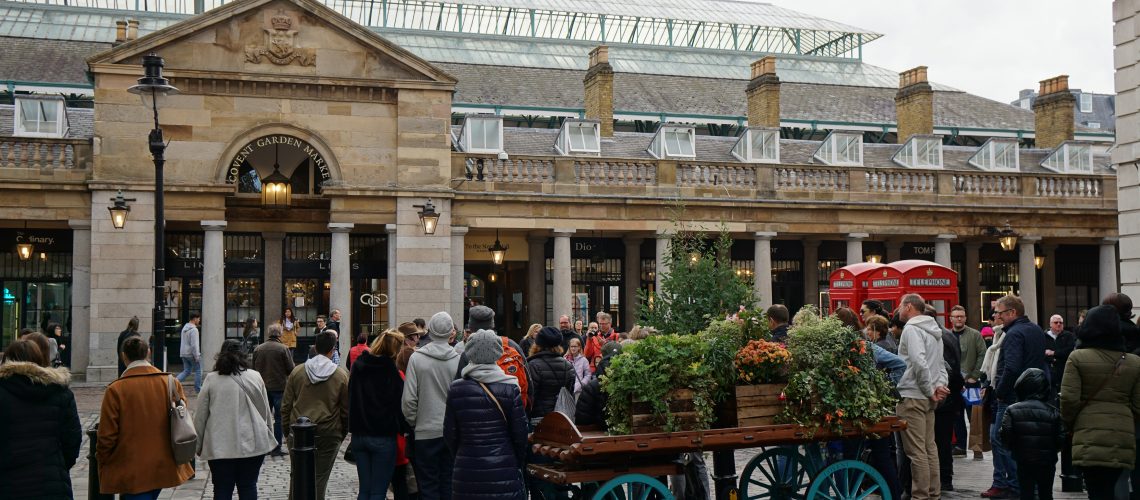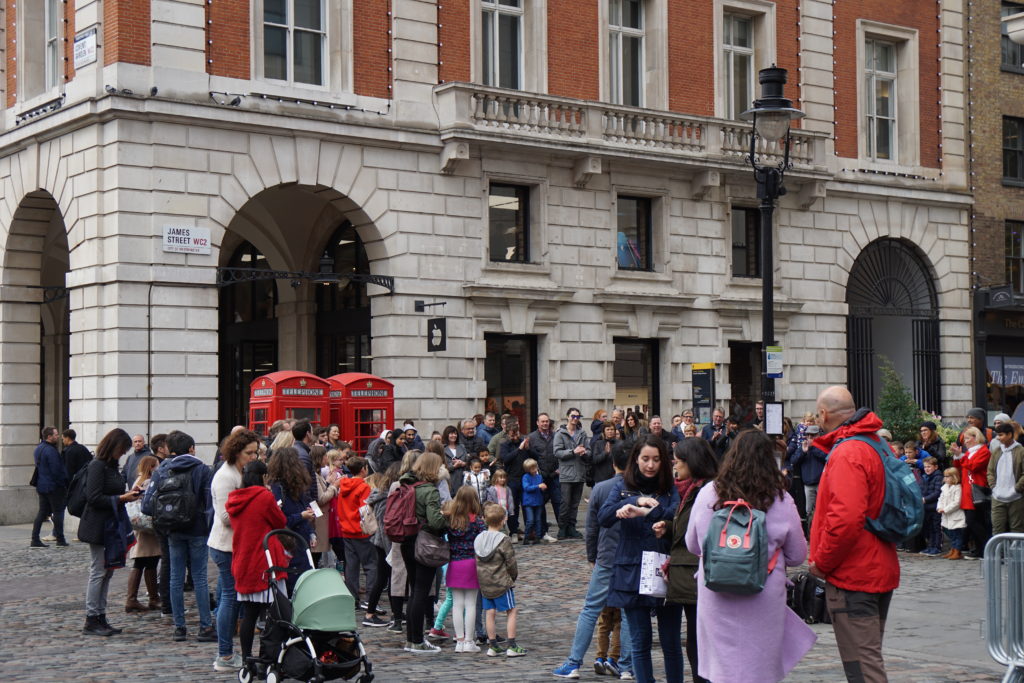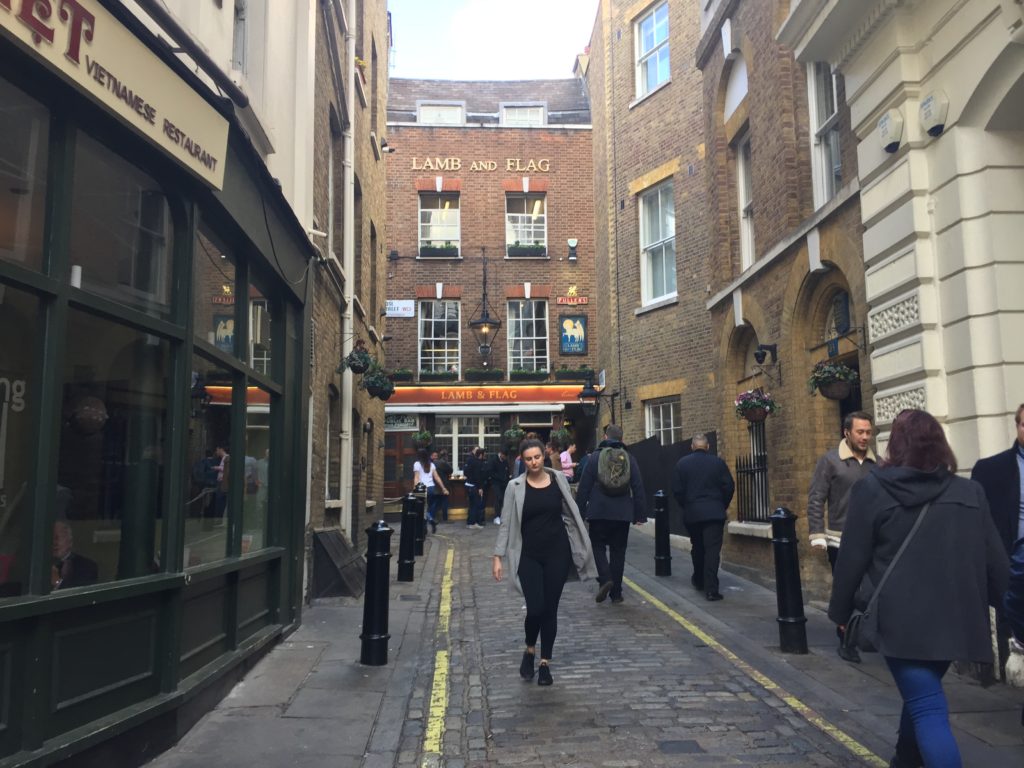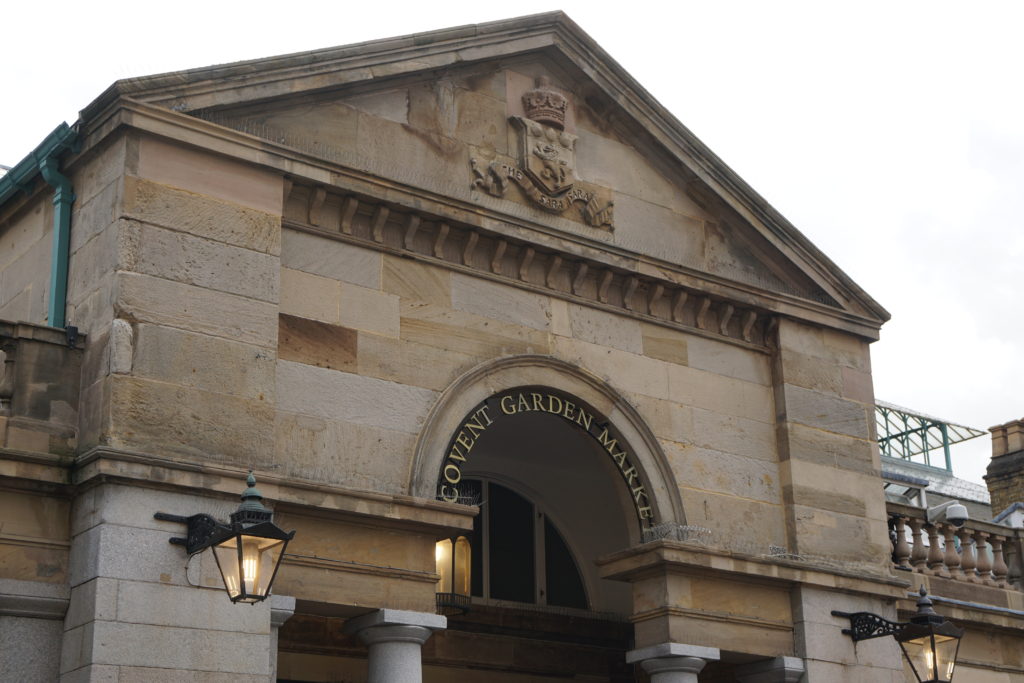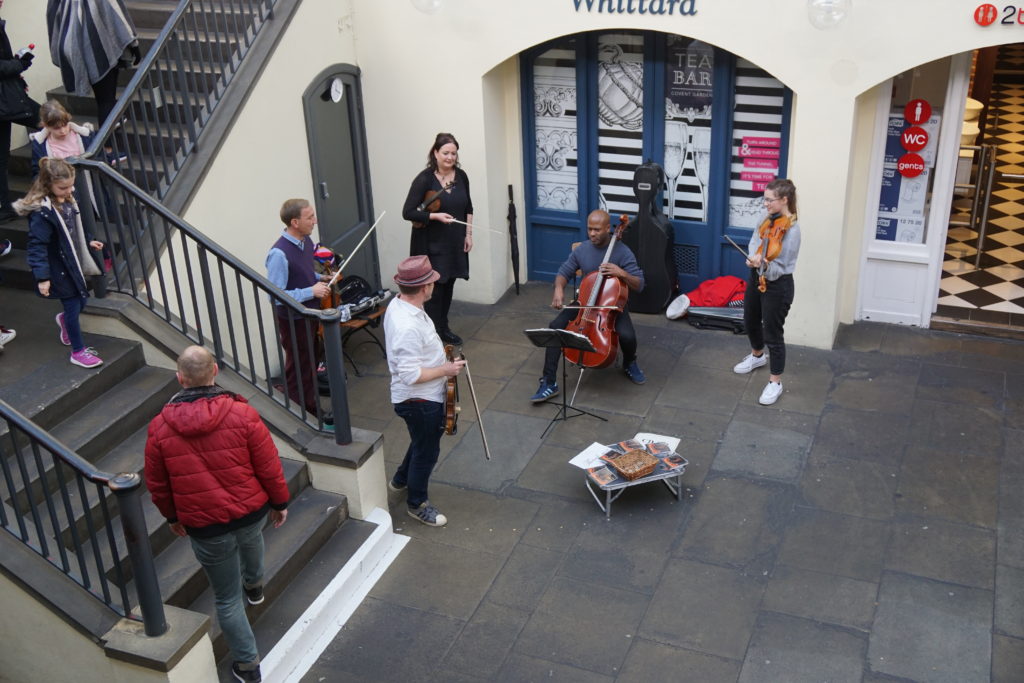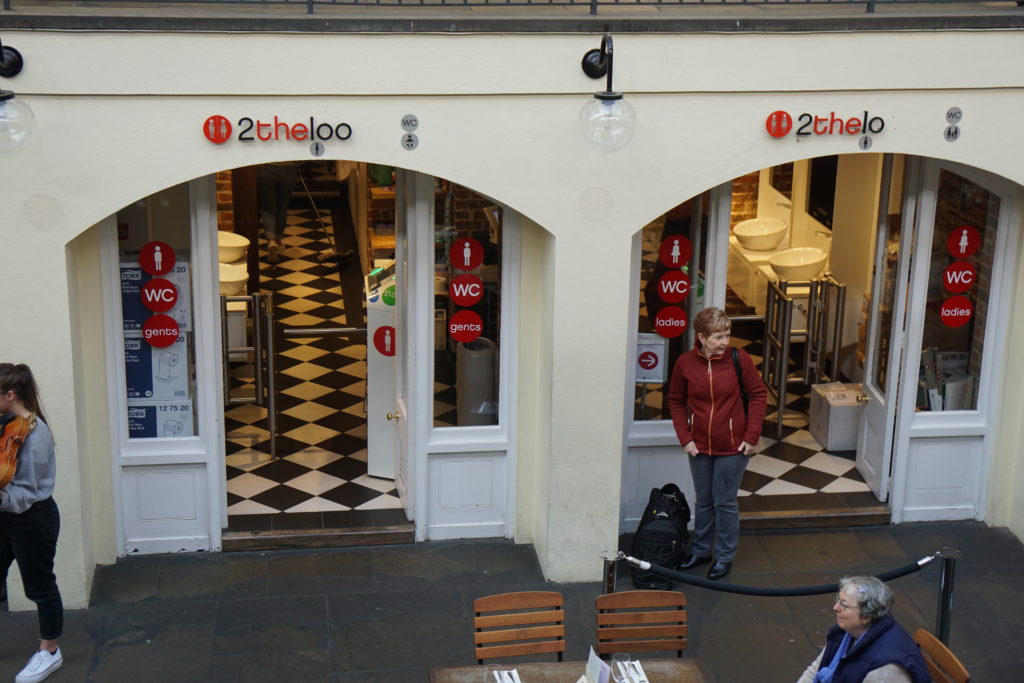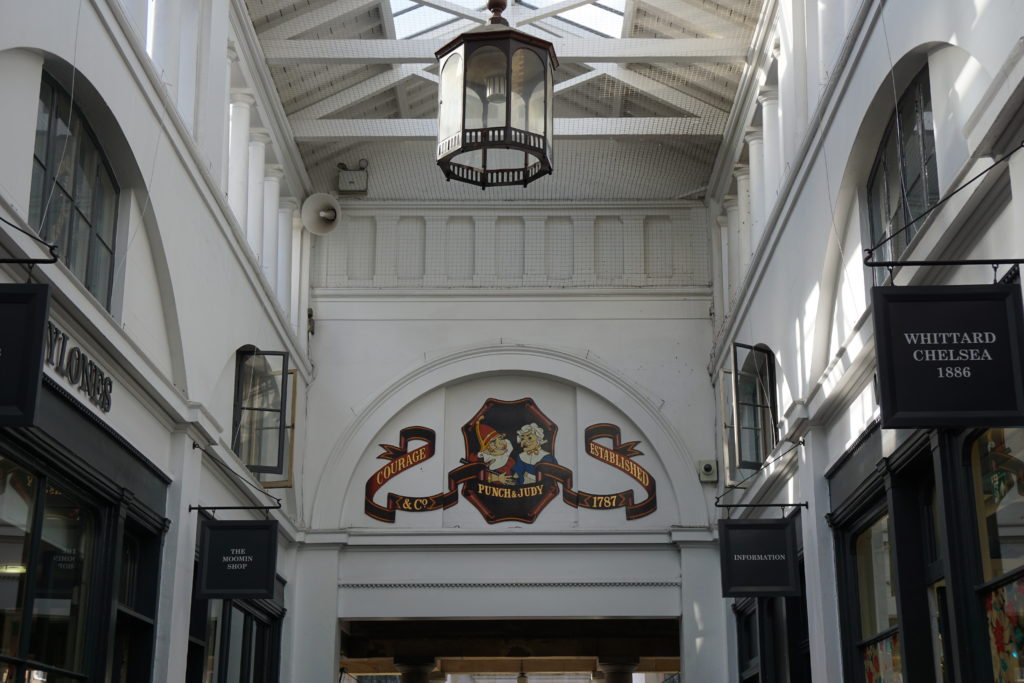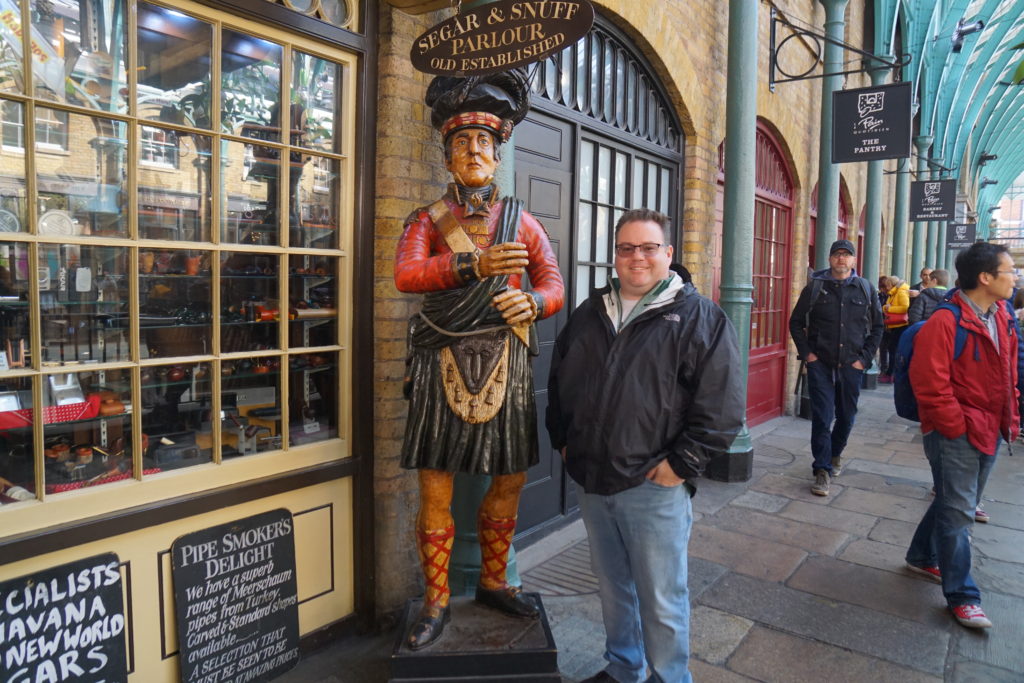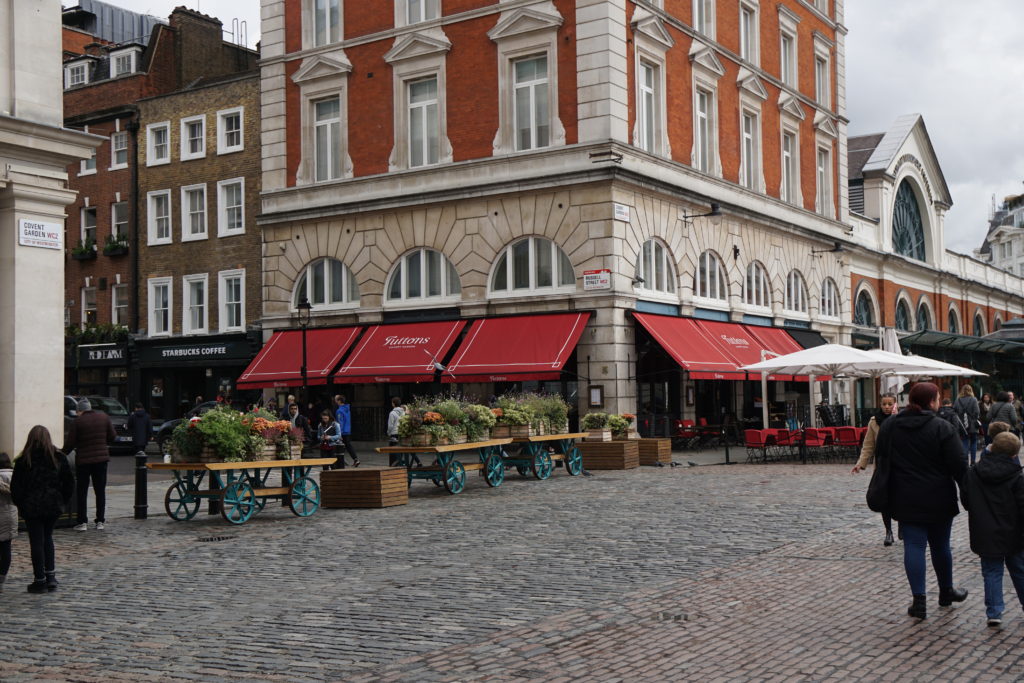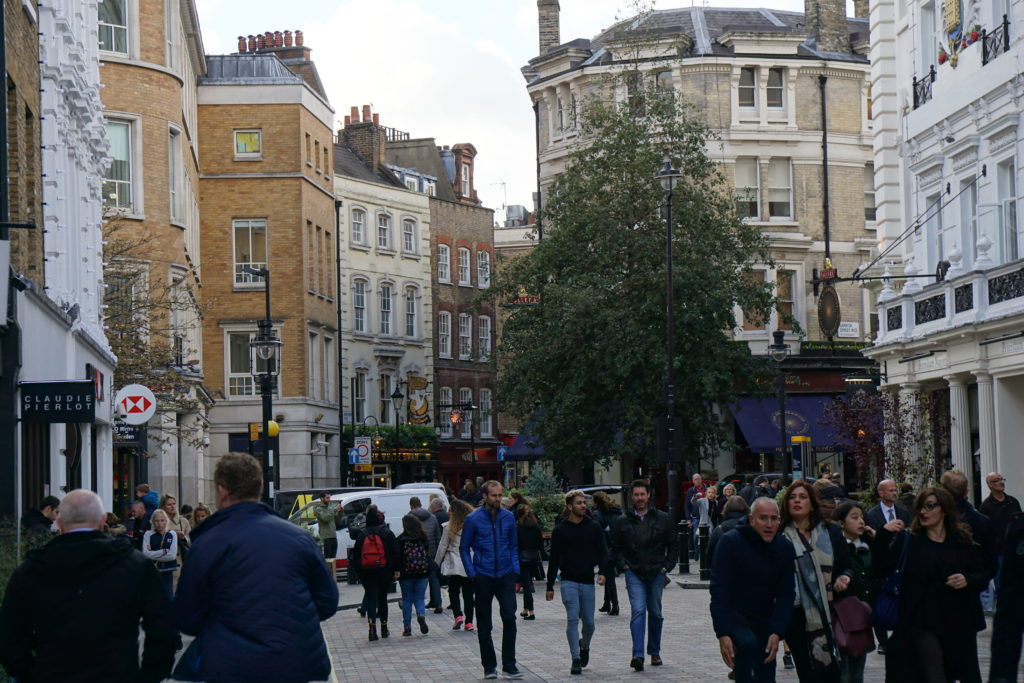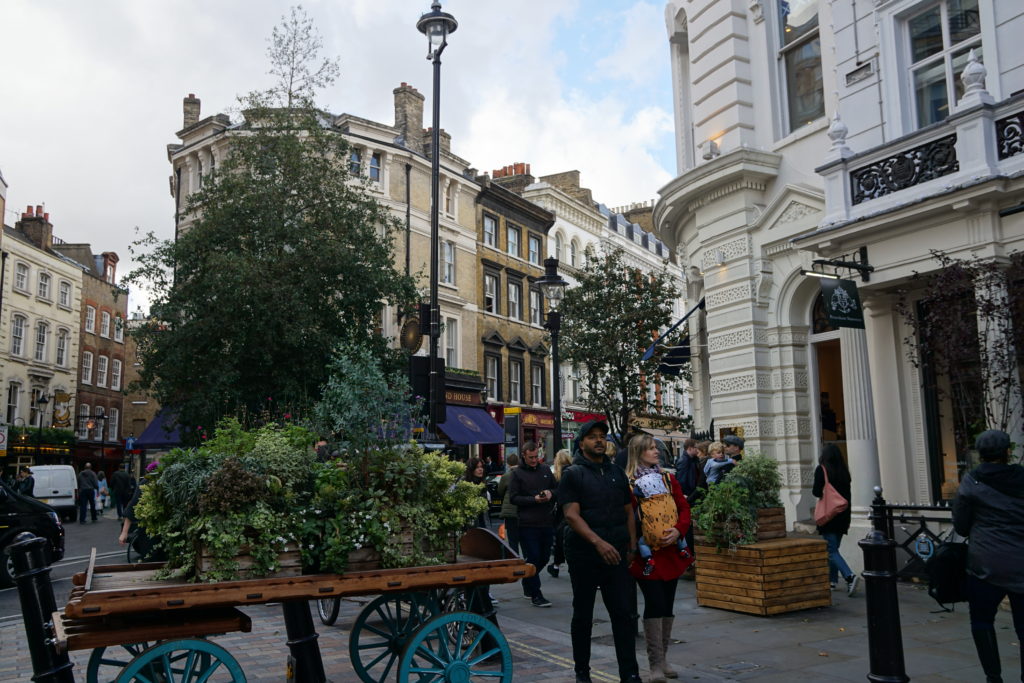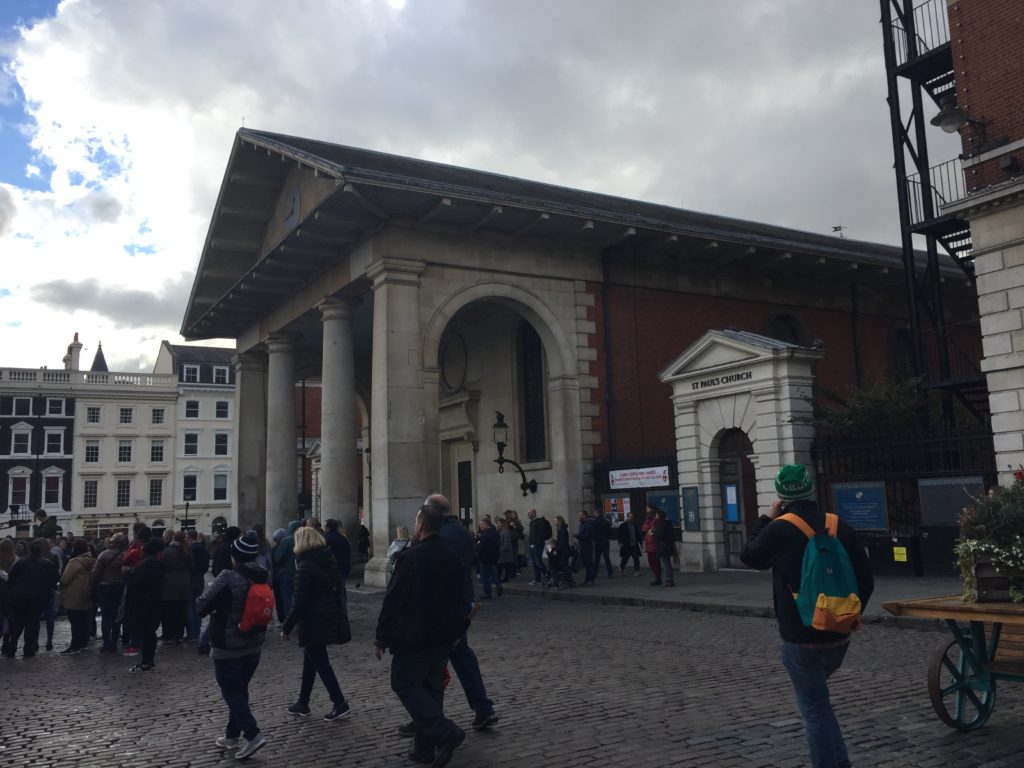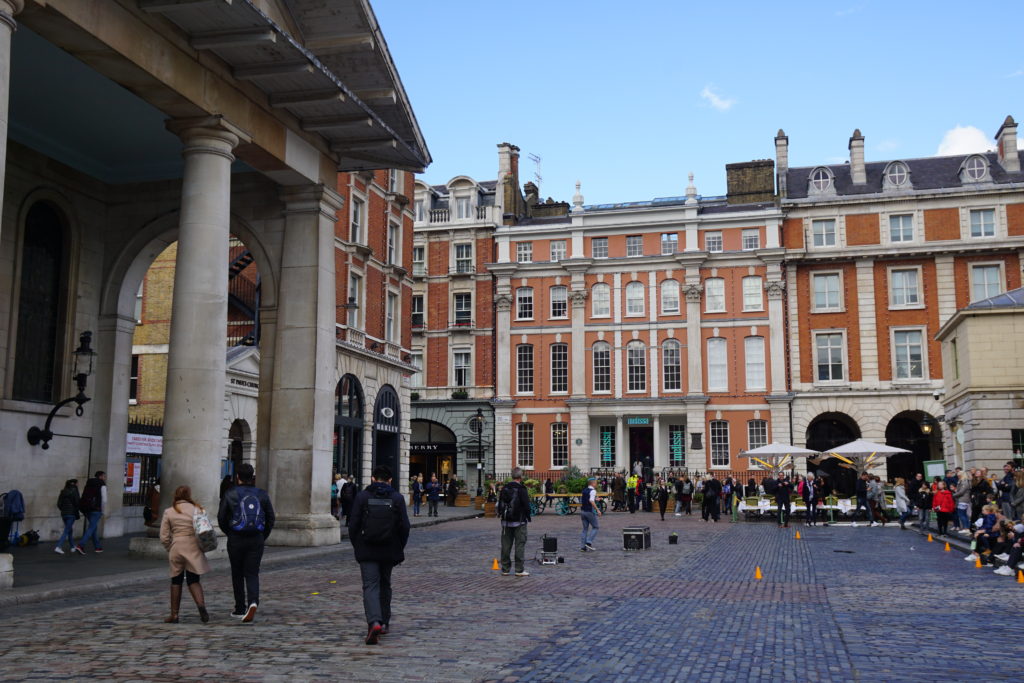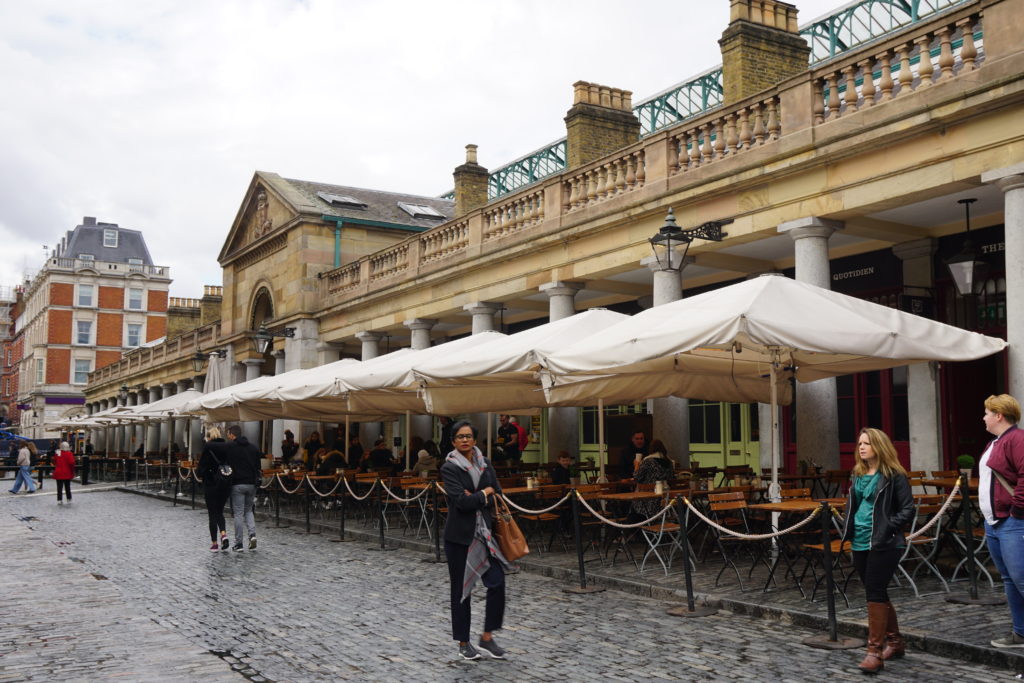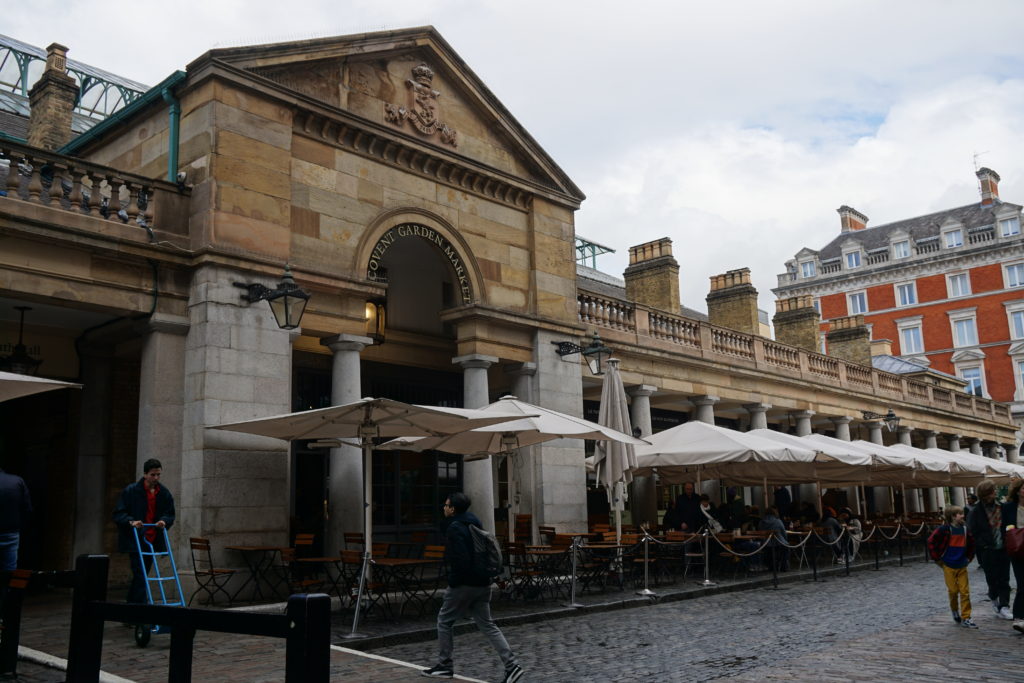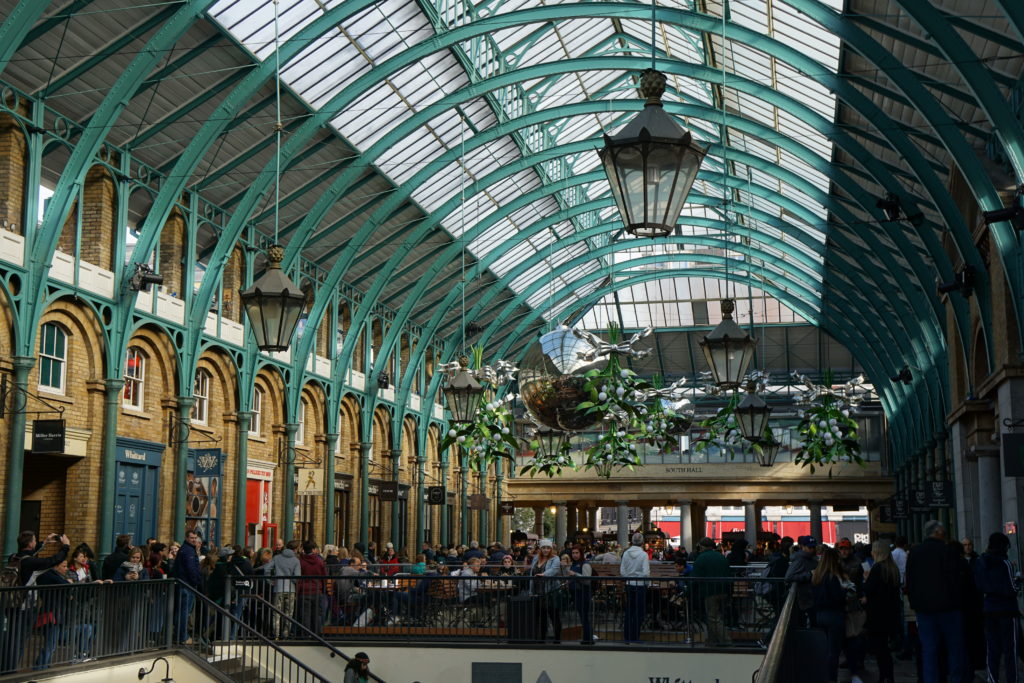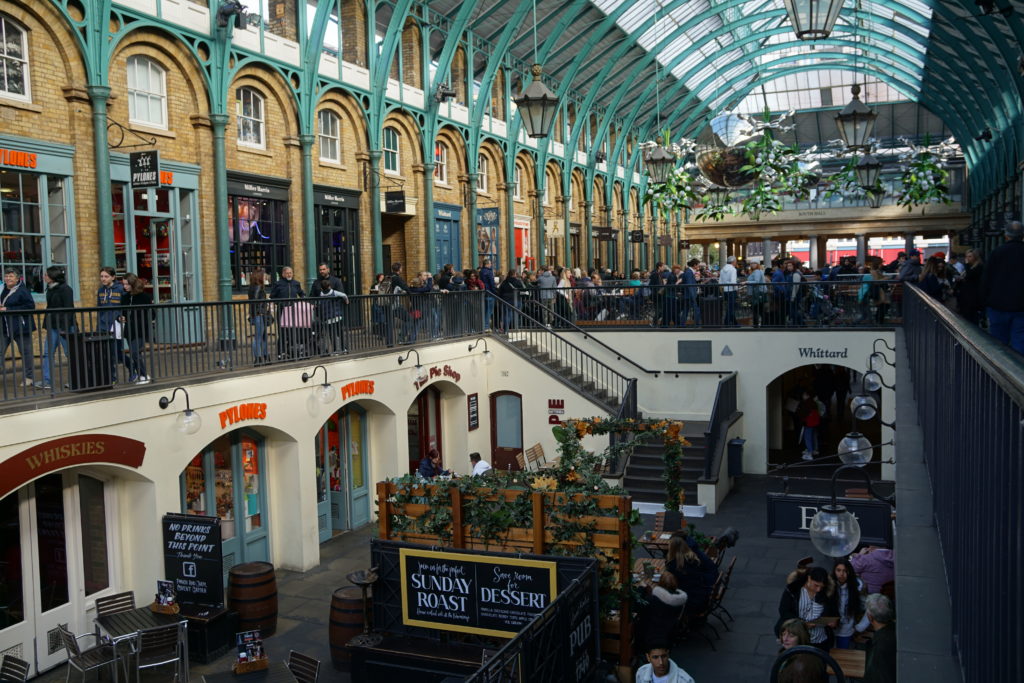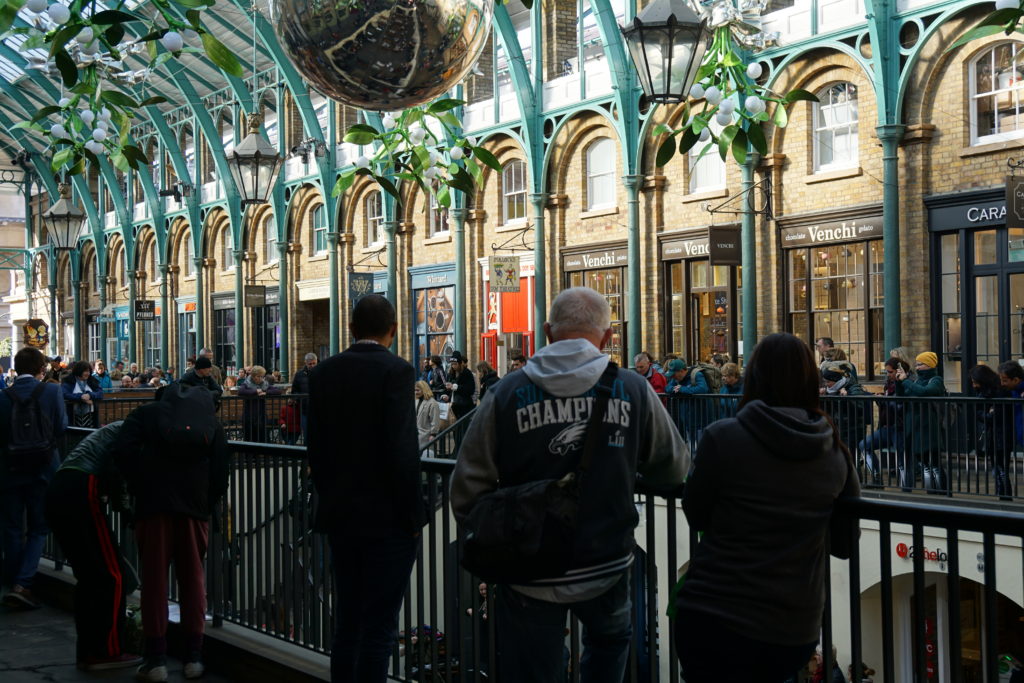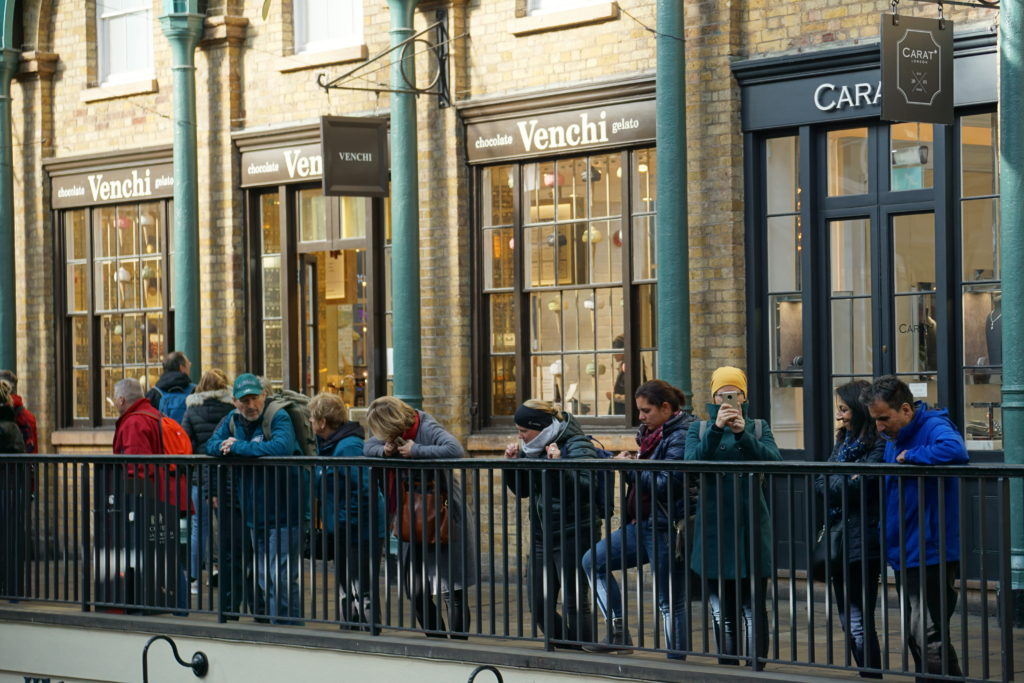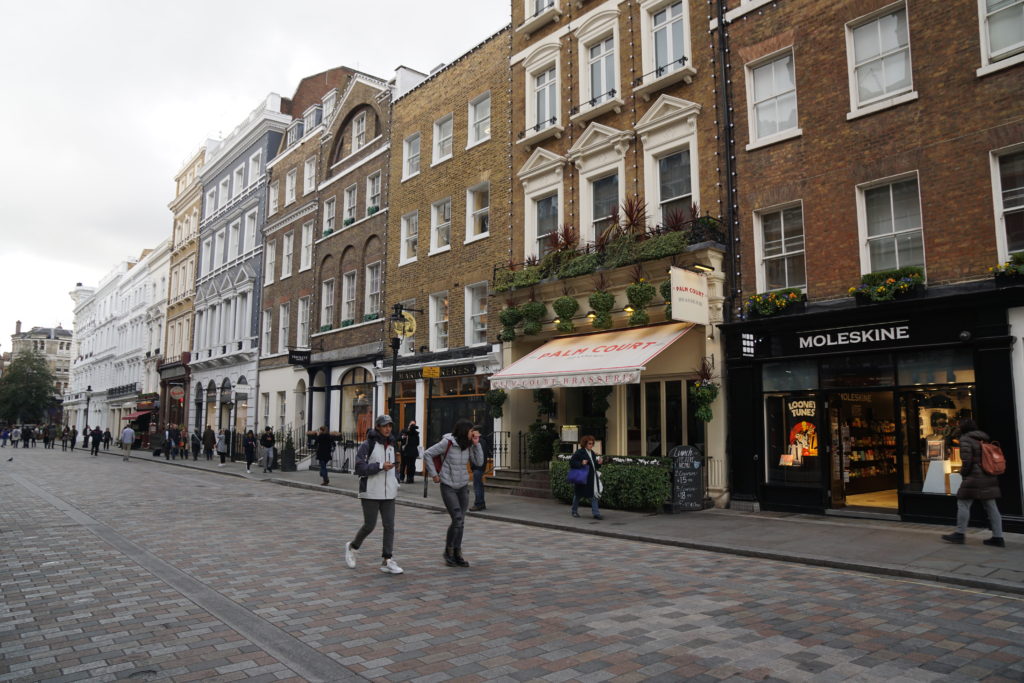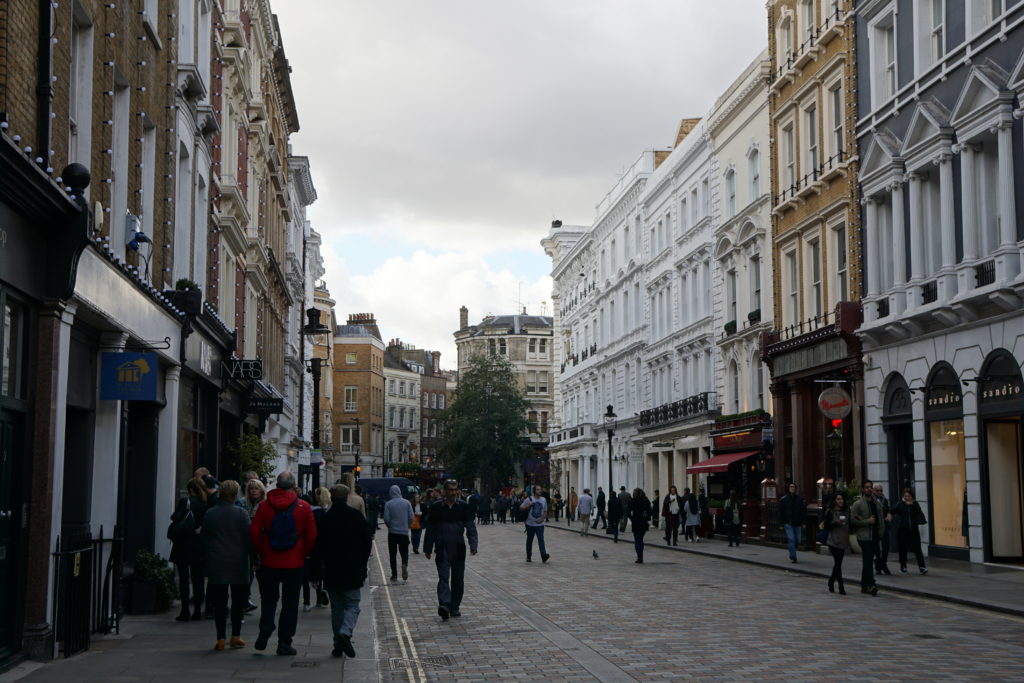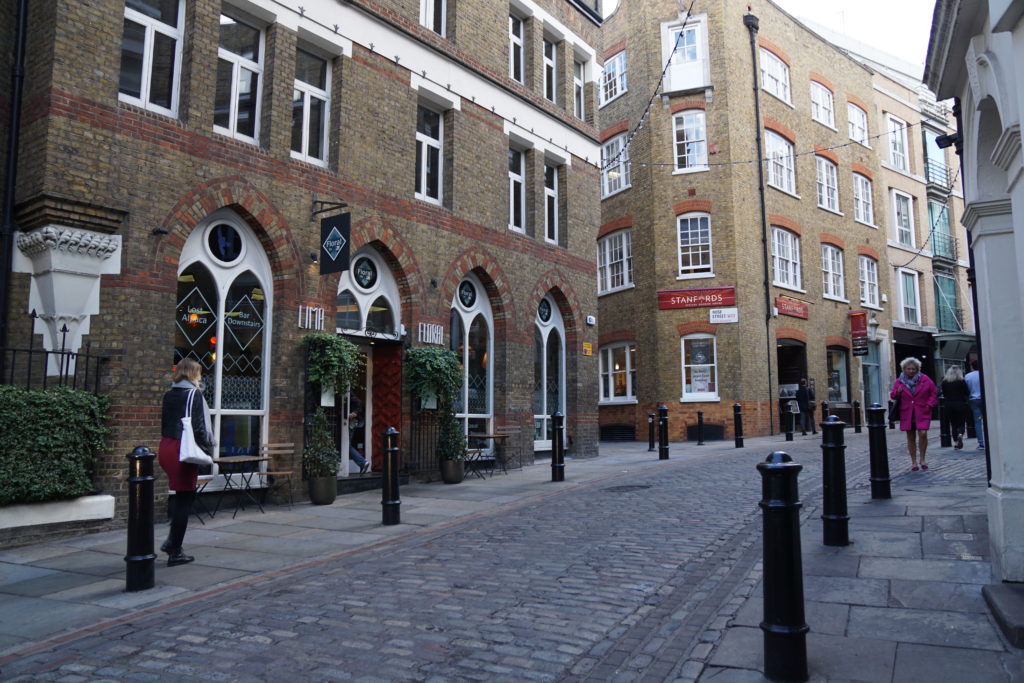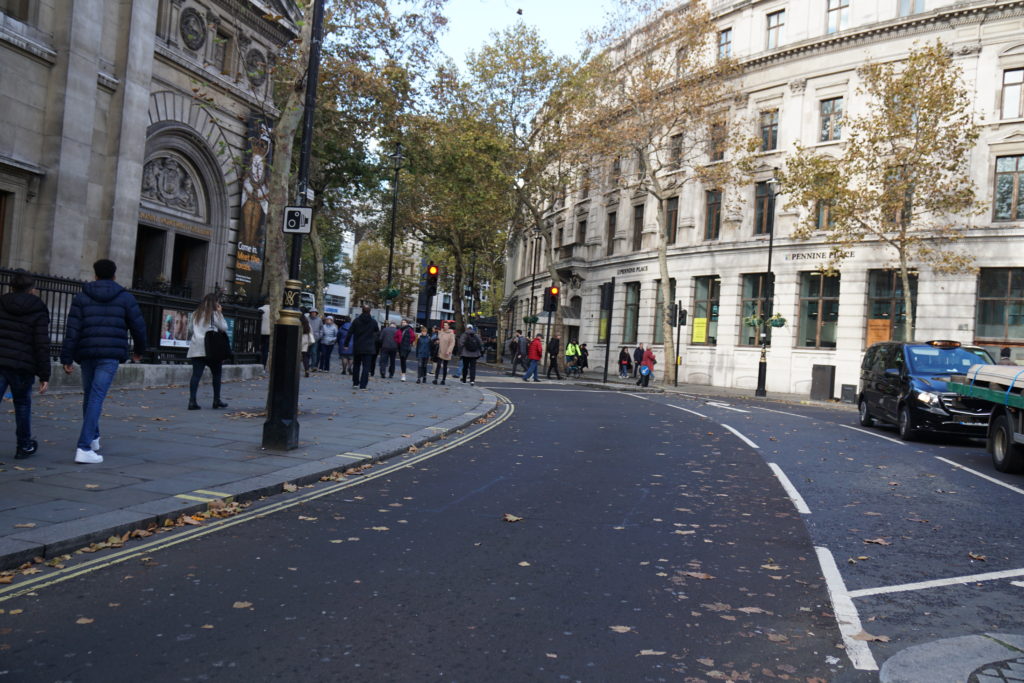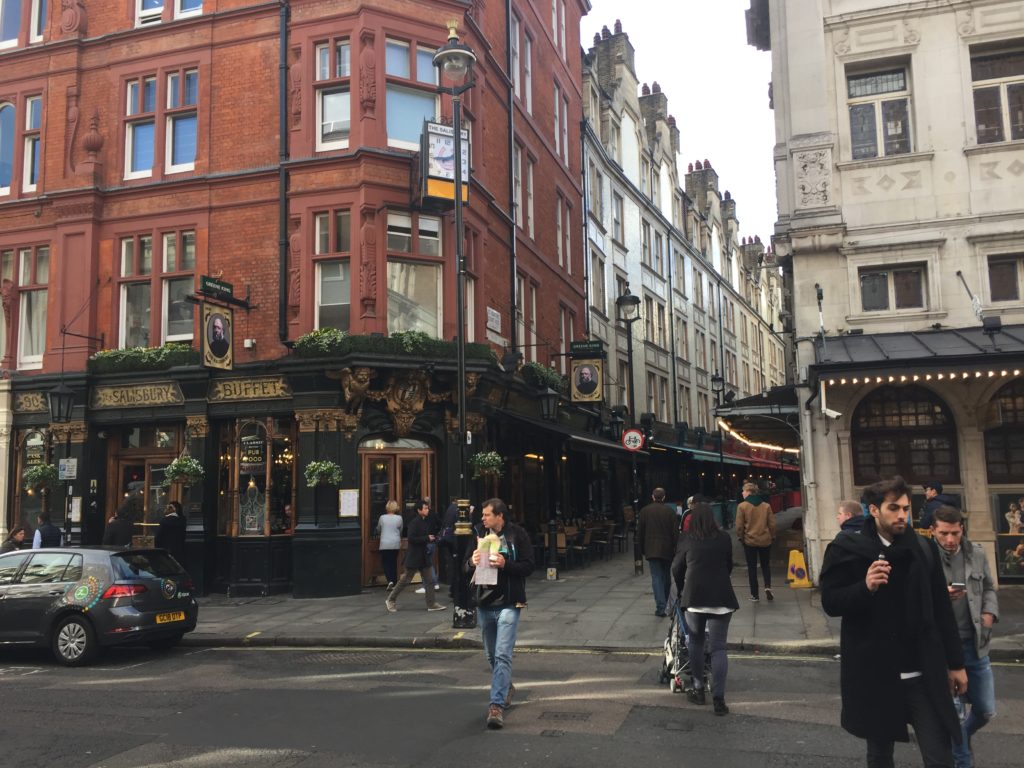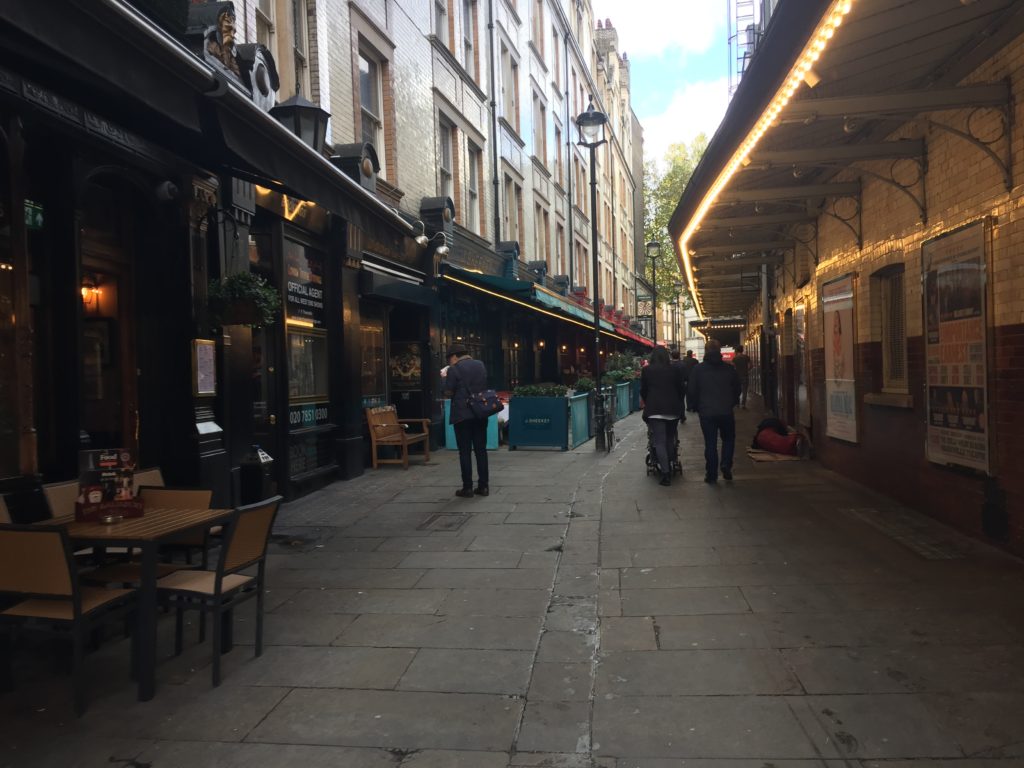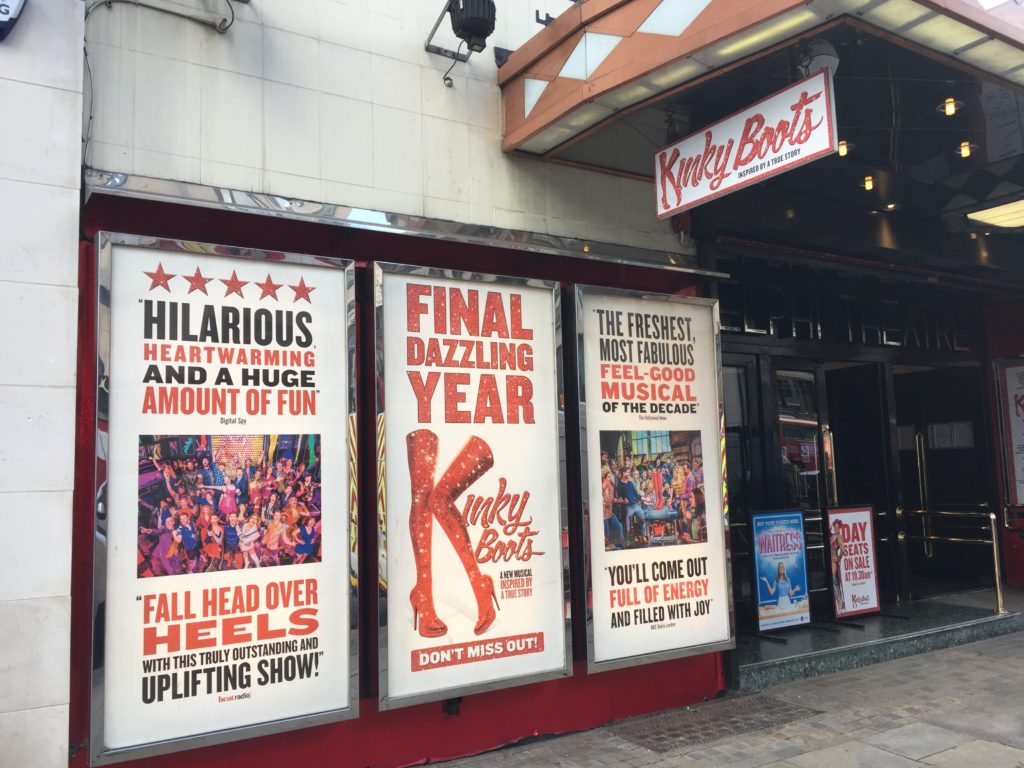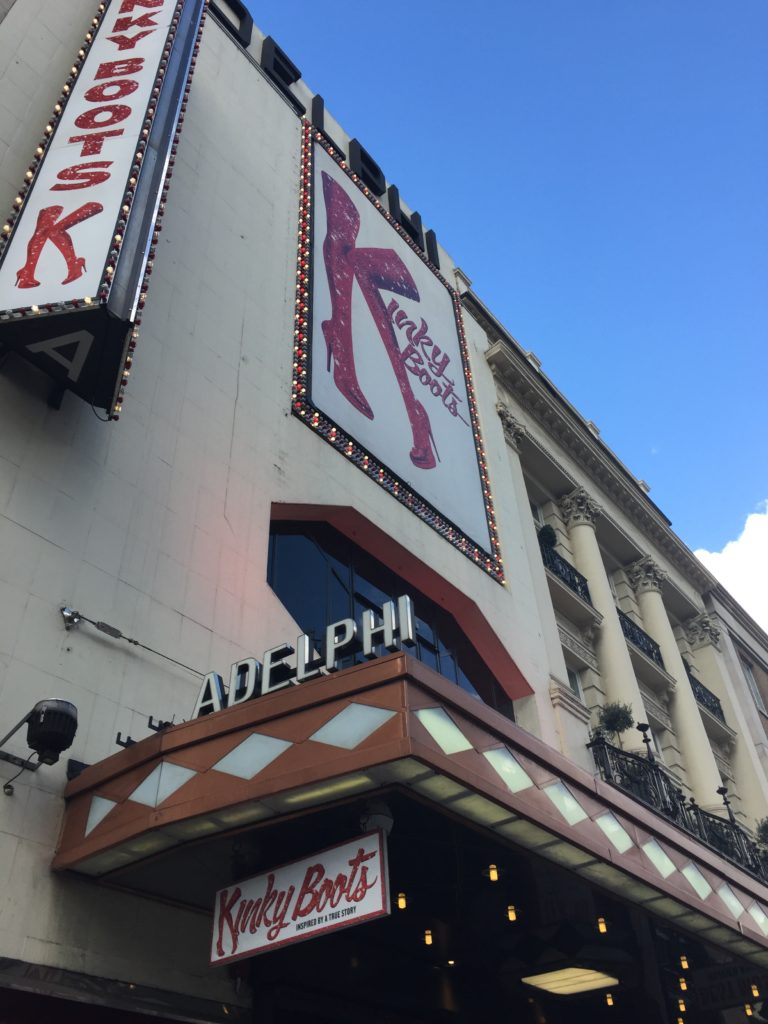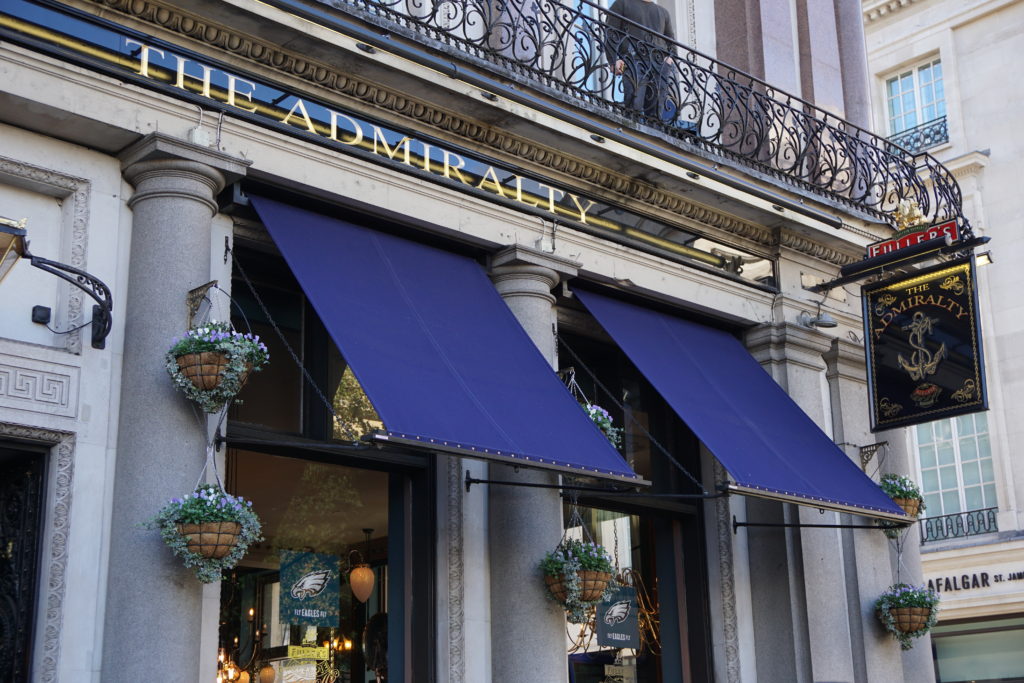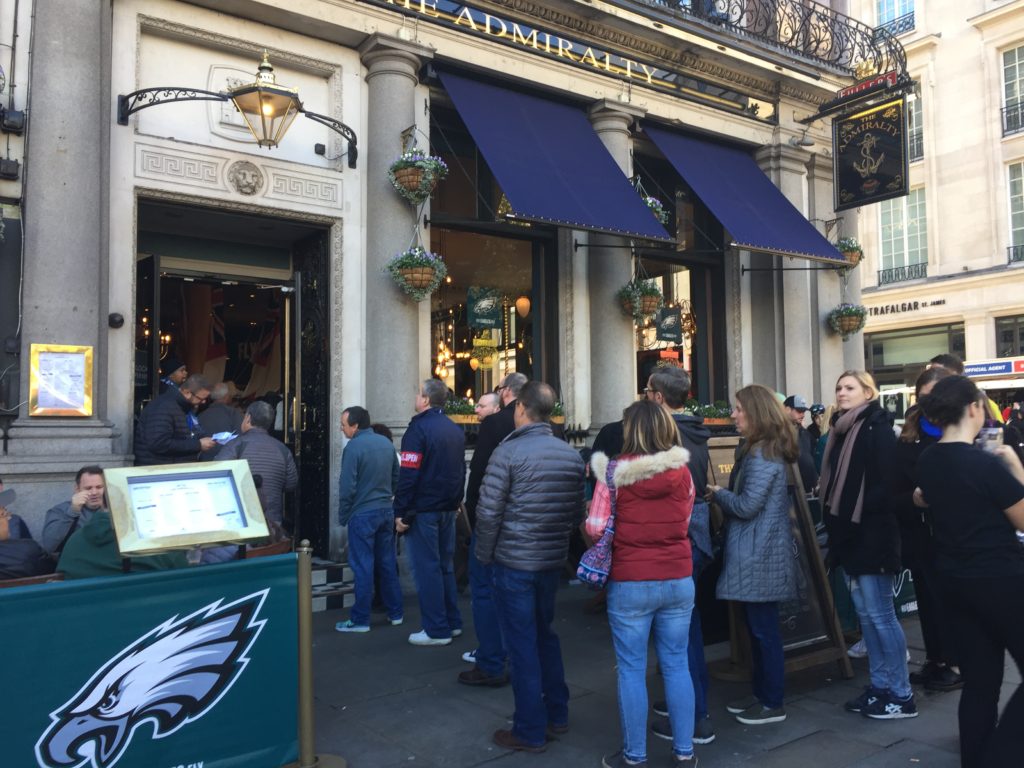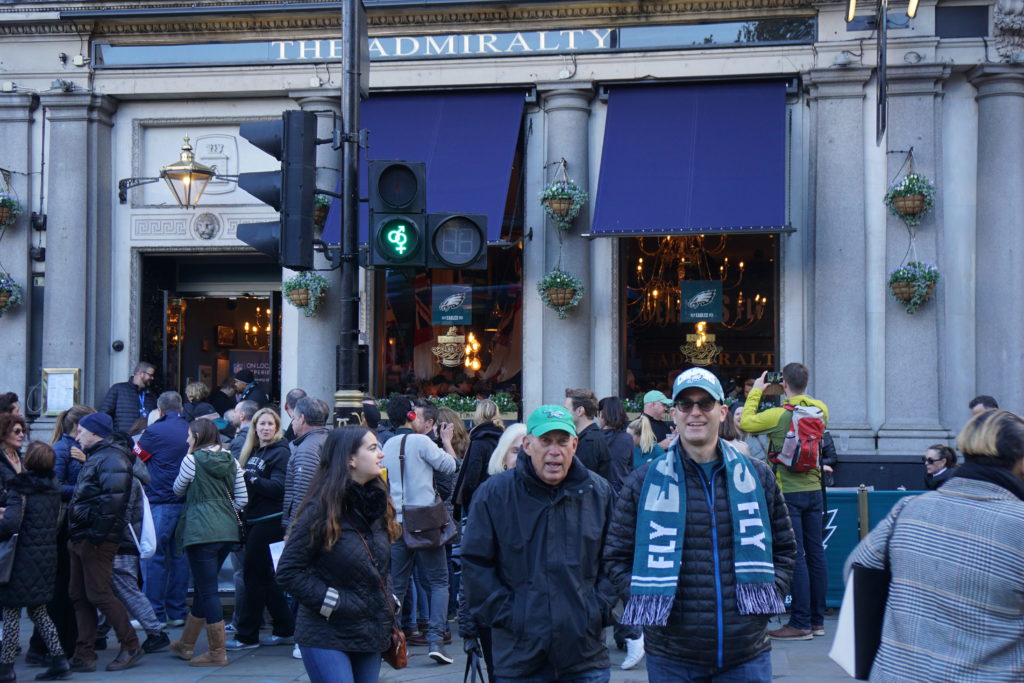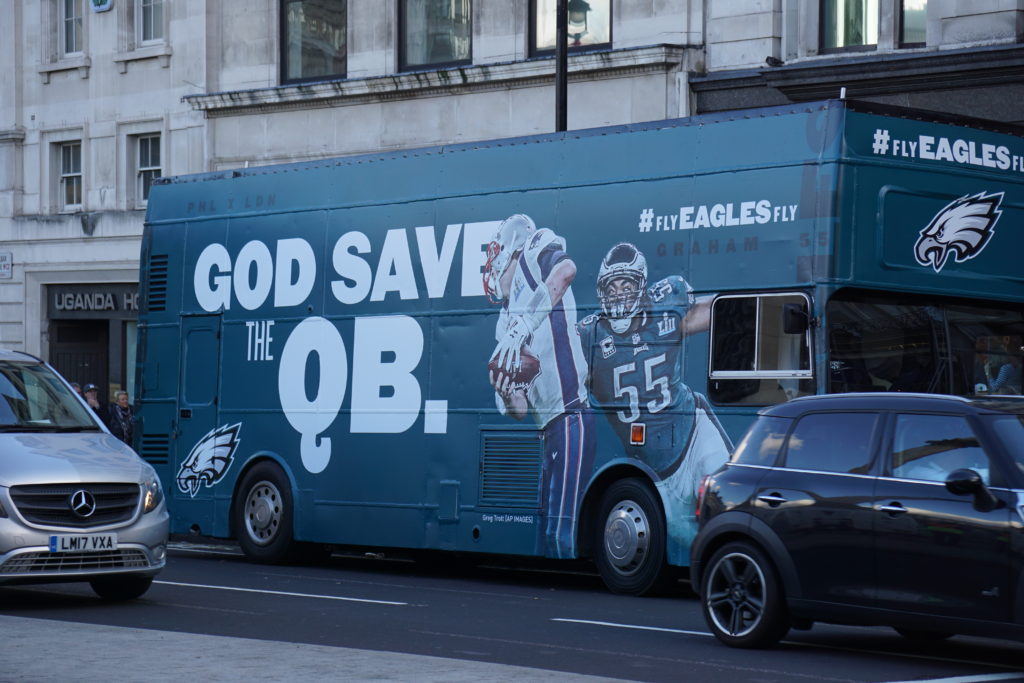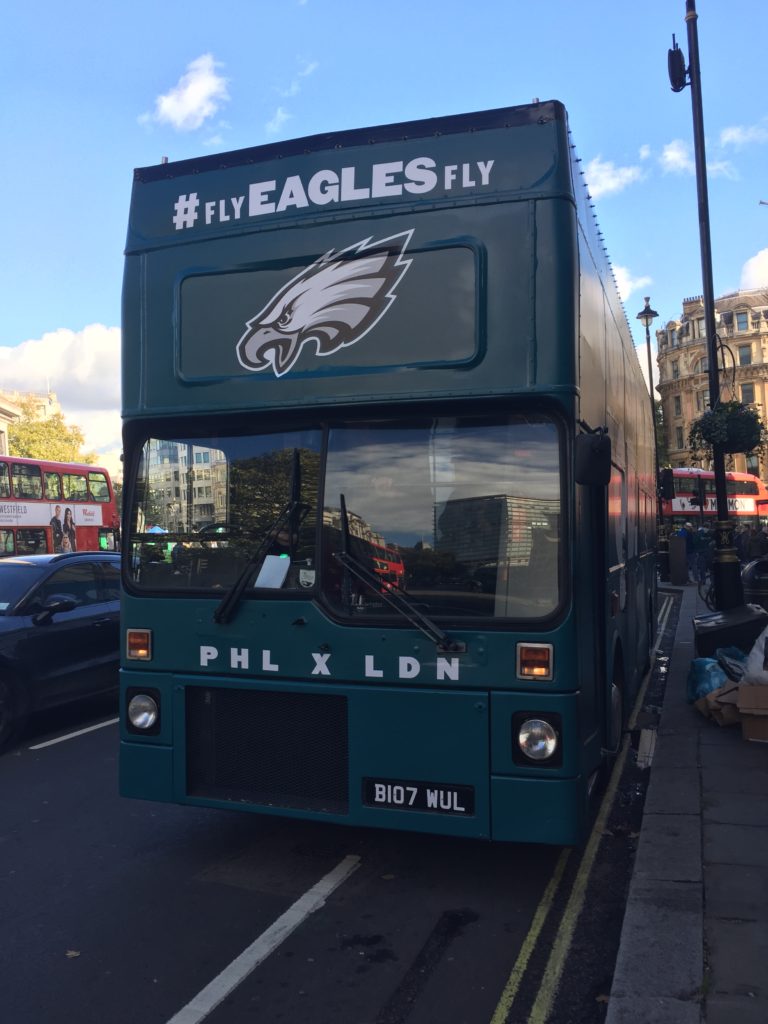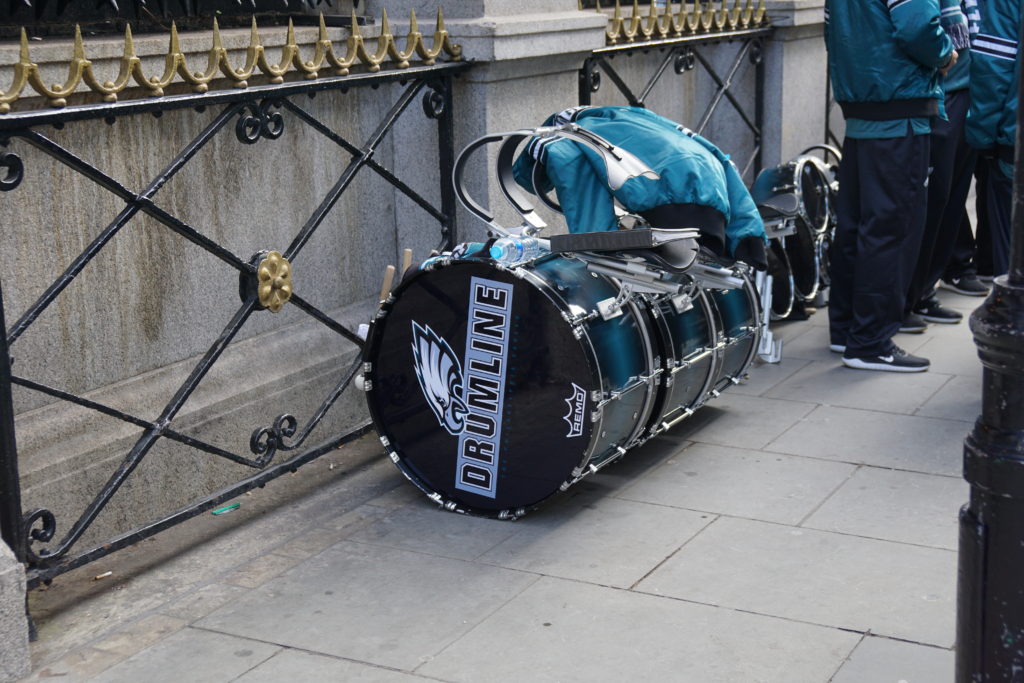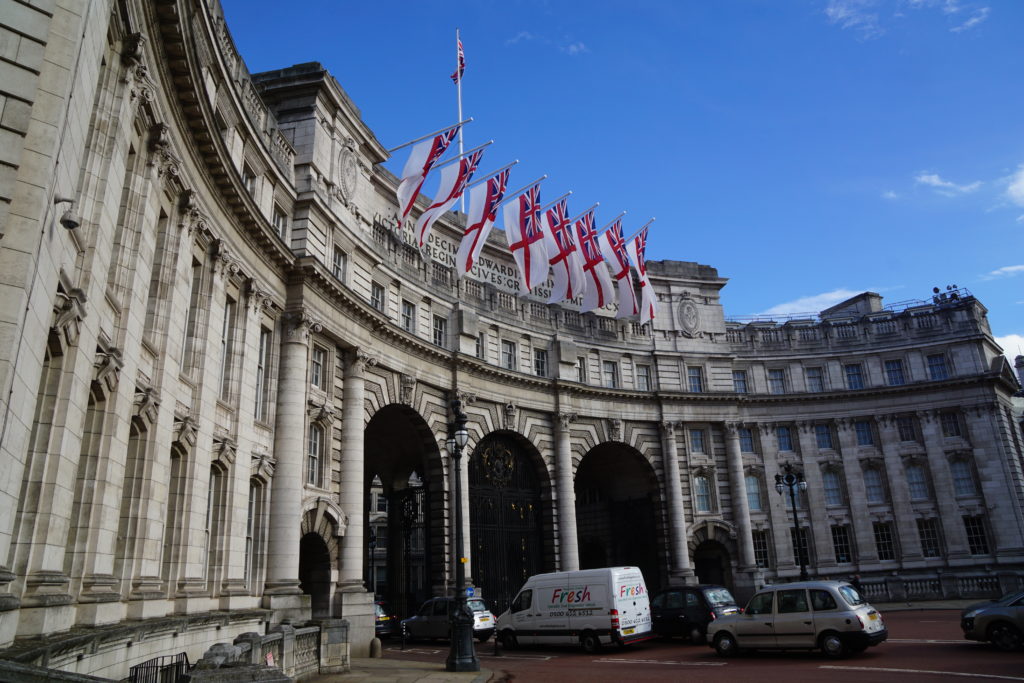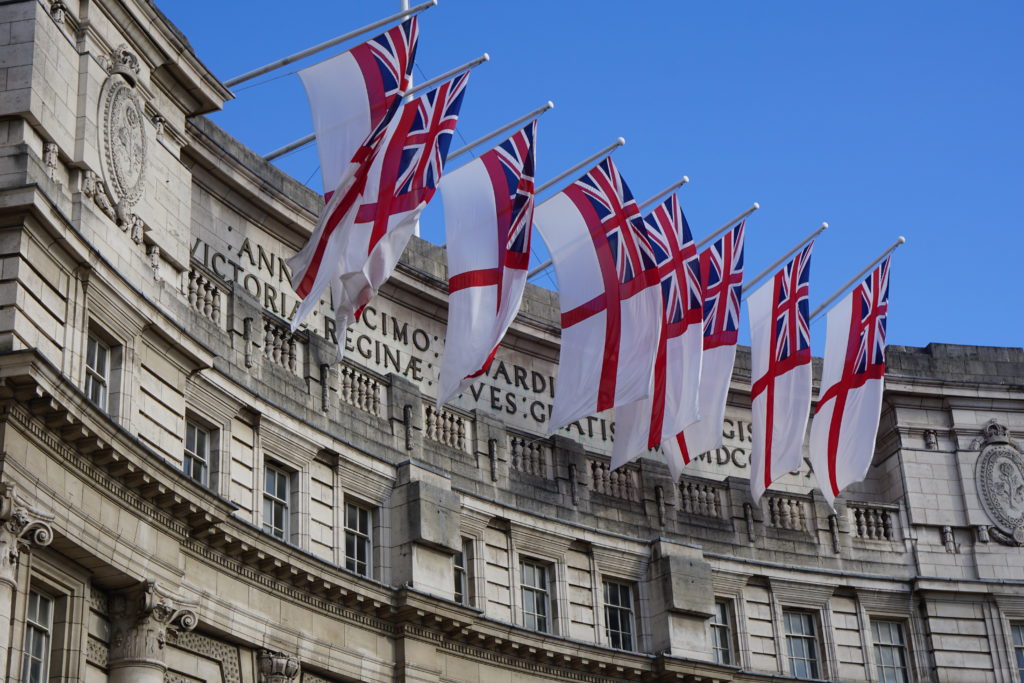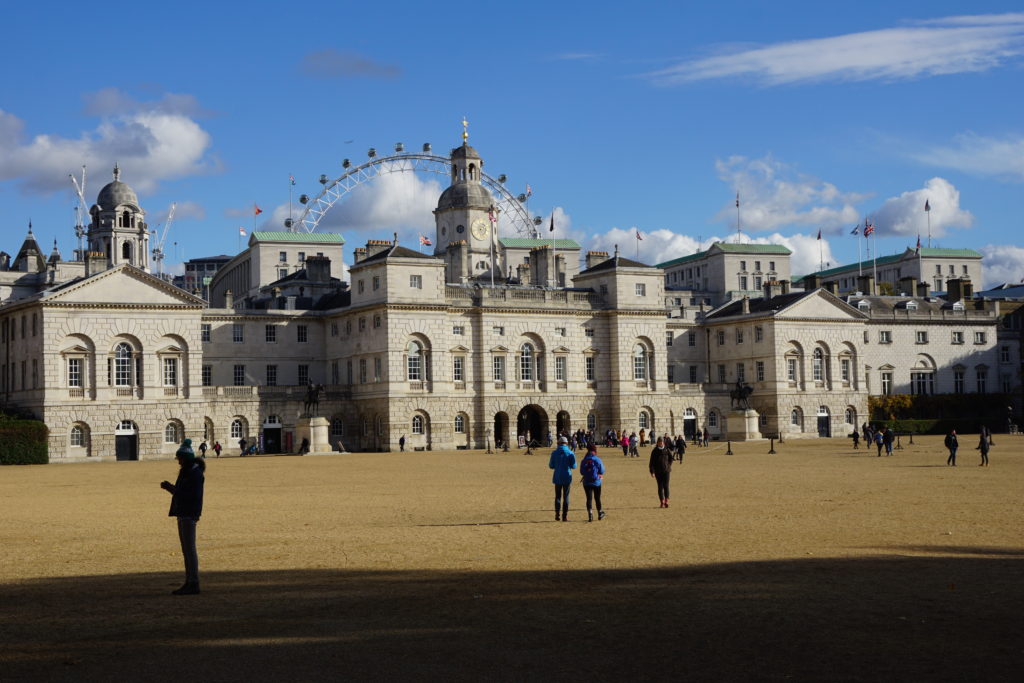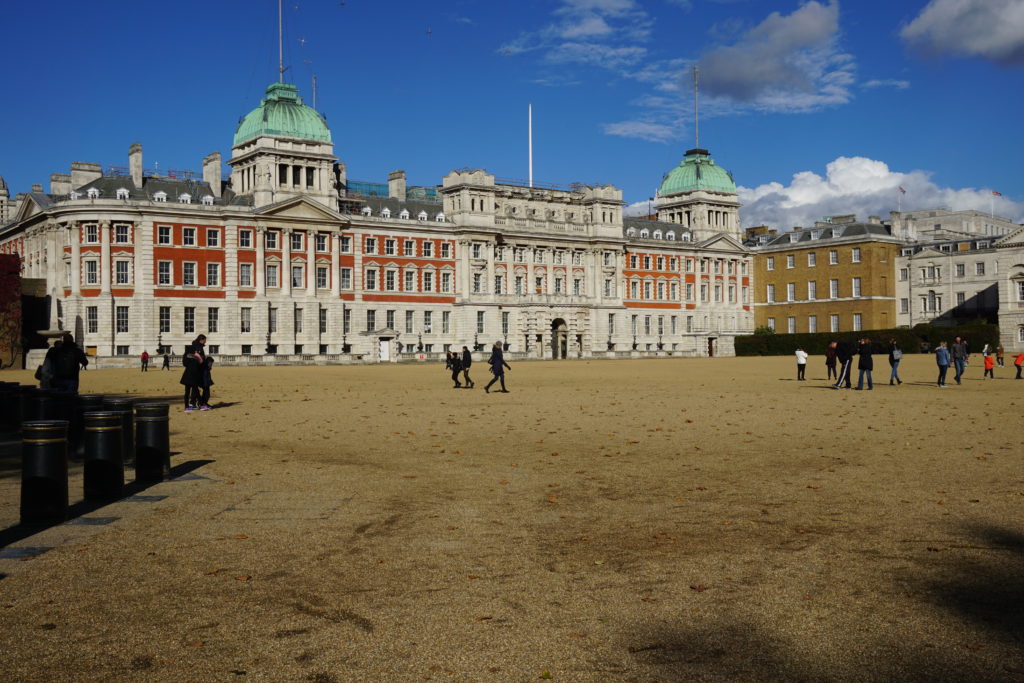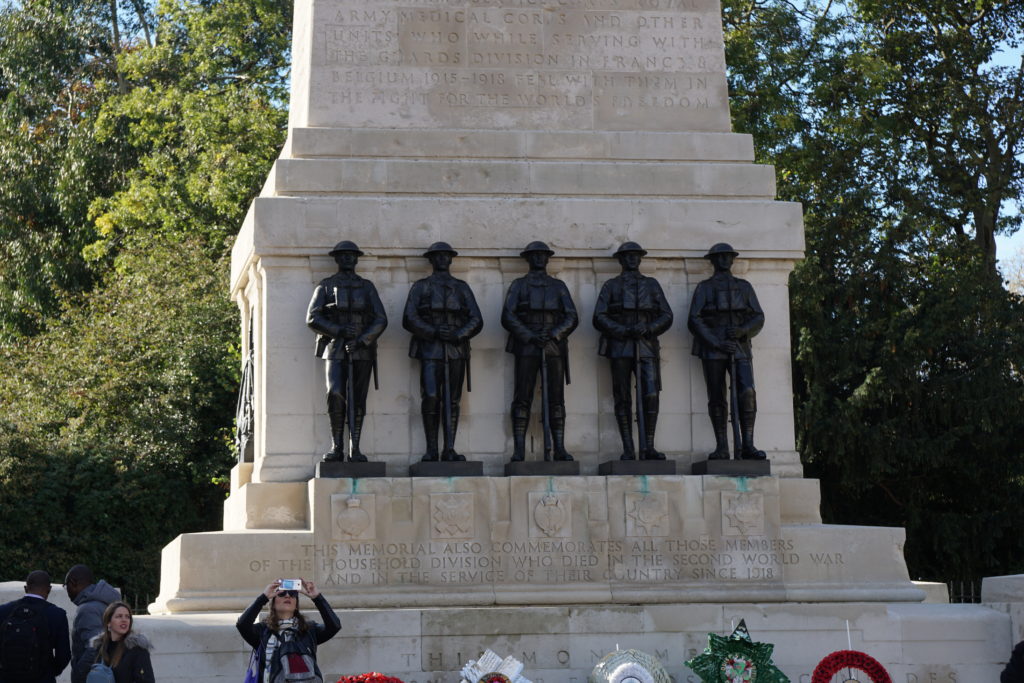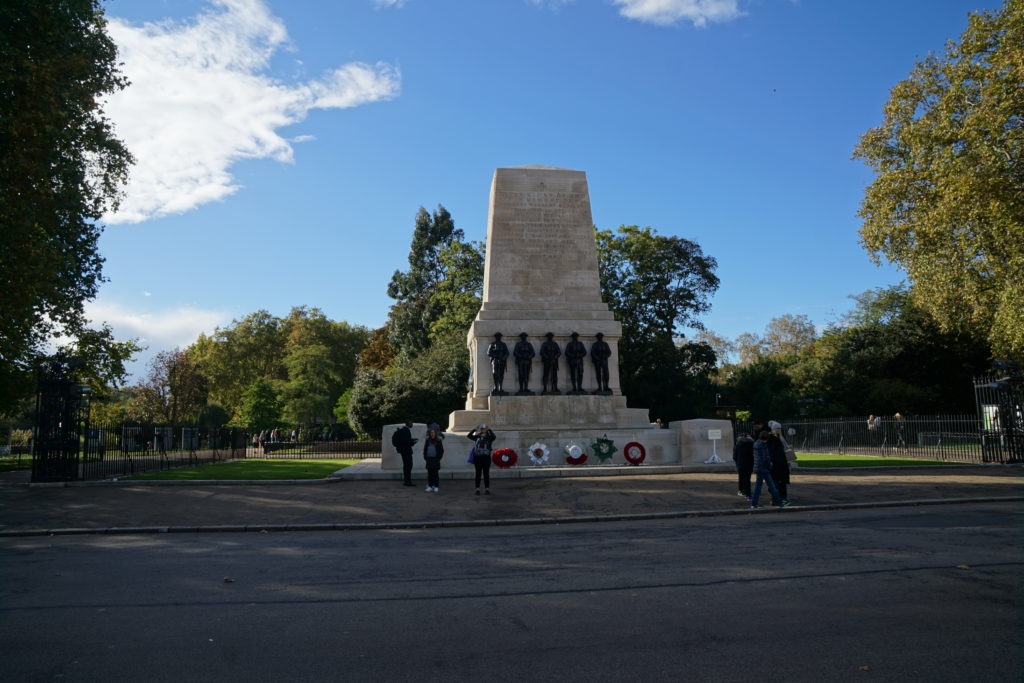Covent Market is a popular shopping district and tourist attraction located in the West End of London. We planned to visit this well known market on Tuesday—just three days prior—but our plans took an unexpected turn.
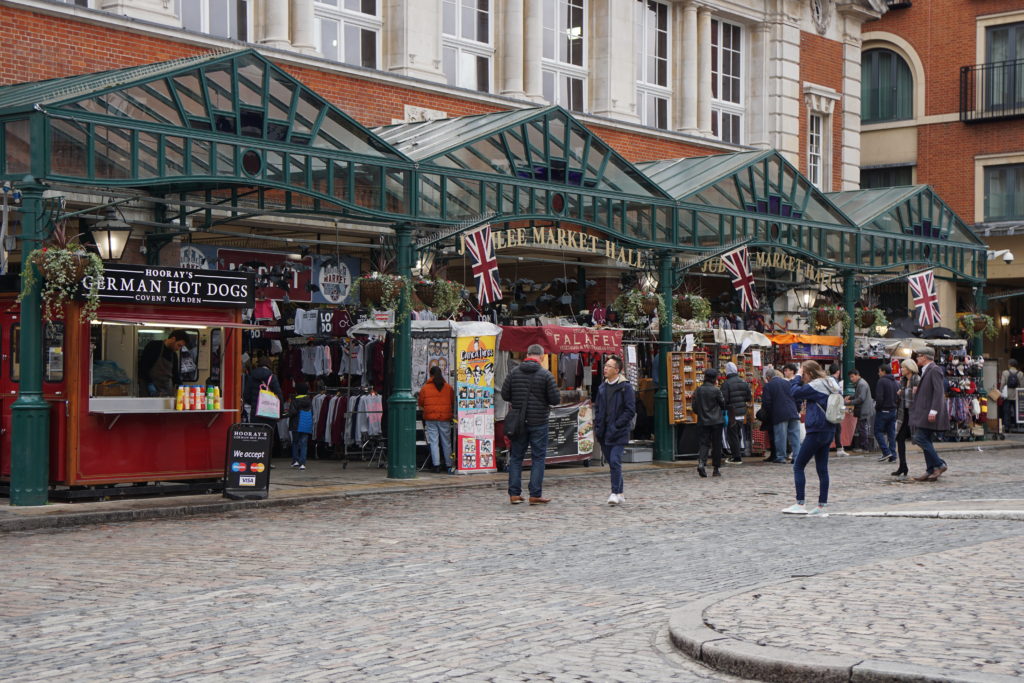
When we left Gordon’s Wine Bar that evening, we fully intended to visit Covent Garden, but a decision to make a quick stop at Trafalgar Square—just a few blocks away—would alter our course of action.
We stood in Trafalgar Square, not quite sure what these landmarks I was taking pictures of were, when it came into view. Across the street sat a pub called the Admiralty, which was decorated with Philadelphia Eagles banners. This stole our attention from the squares’ main focal point, Nelson’s Column. How about that! Of course we could squeeze in a quick pint before making our way to Covent Garden, right? Absolutely! So…in we went. And yes—you guessed it—we never made it to Covent Garden.
No worries, despite a bit of rain and some overcast, today we venture off to Covent Garden . . .
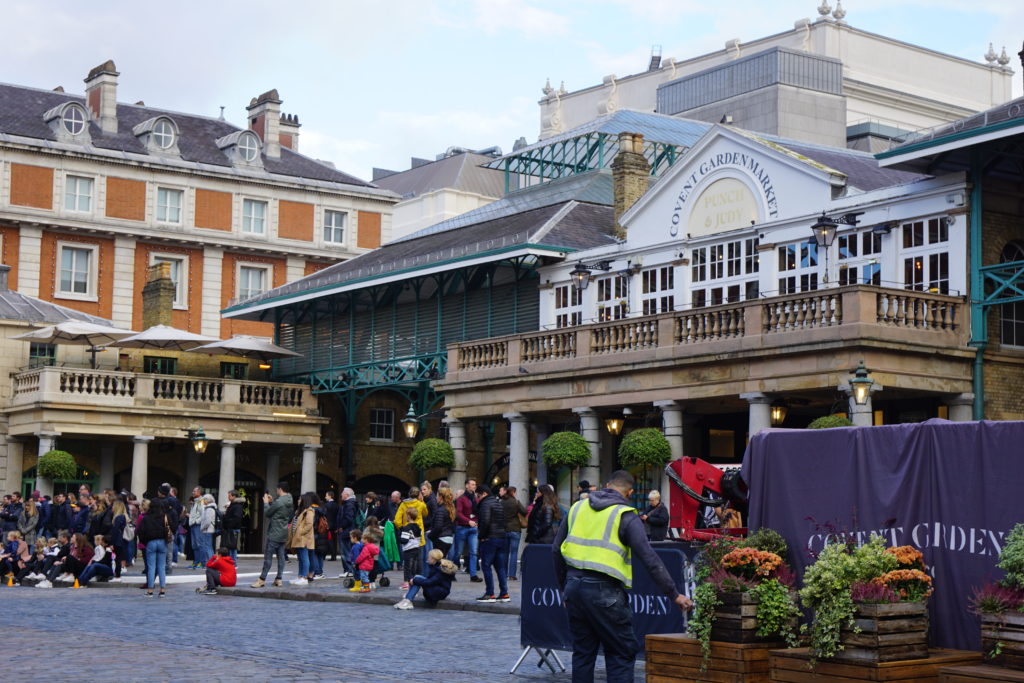
Covent Garden: A Brief History
Once the location of fields, the area was settled in the 7th century and would become the heart of the Ango-Saxon trading town of Lundenwic. Wic derived from the Latin word Vicus for “trading town.” Lundenwic, as you may conclude, meant “London trading town.” By the end of the 9th century, the town would become abandoned and return to it’s prior state as fields—then known as Ealdwic, meaning “old trading town.”
By 1200, part of the area had been walled off by Westminster Abbey as “arable land” (land that can be used for growing crops).
It was referred to as “the garden of the abbey and Covent,” and later called, “the Covent Garden.”
The land was seized by Henry VIII in 1552—after dissolving the monasteries—and granted to John Russell, 1st Earl of Bedford. The land remained unchanged for the next century until Francis Russell, 4th Earl of Bedford, commissioned Royal Architect Inigo Jones to develop a square consisting of elegant homes—so as to attract wealthy tenants—and a church.
The Earl’s request: To develop a square, “fit for gentleman with ability.”
In regards to the church, the Earl requested nothing more than a barn, as to keep costs down. Jones replied, “then you shall have the finest barn in London!”
Though the Garden has operated as a market since the mid 1650’s, the district gradually fell into disrepute, and by the 18th century, it had become a known “red-light district.”
In fact, a publication from 1757 to 1795 called, Harris’s List of Covent Garden Ladies, was an annual directory of prostitutes working the surrounding area. It’s annual circulation was estimated to be about 8,000 per year. The going rate for a publication: two schillings and six pence.
In 1830, Royal Architect Charles Fowler was commissioned to build a neo-classic market building to cover, and help organize, the market.
The market continues today, drawing millions of visitors per year—approximately 44-million annually. You will find shops, pubs (I believer there are about 60 pubs in Covent Garden), and of course, street performers—who perform every day of the year with the exception of Christmas Day.
Surrounding Areas and Theatre District
Leaving the square of Covent Garden, we randomly walked the streets, not quite sure where the day would take us. We simply admired the picturesque surroundings we found ourselves in, and even took some time to enjoy a little shopping.
Though the £350 top hat was tempting, I opted for the Mr. Bean bobblehead instead. In fact, I didn’t even have to buy that for myself—thanks Kathie! I just don’t know what I’ll wear to the races though.
Walking through the theatre district we stumbled upon the Adelphi Theatre, home to the musical Kinky Boots. If I had better prepared my trip, I would have attempted to secure tickets to a show. Based on a movie of the same name, which is well worth the watch by the way, Kinky Boots is probably my favorite musical. We had seen this show on Broadway in NYC, and were lucky enough to catch it when it came to Philadelphia and Atlantic city. Oh how I would have loved to have seen it in London.
The Admiralty: Eagles Fans Arrive in Force
We began to make our way towards the Whitehall area of Westminster with hopes of visiting the Churchill War Rooms. Our walk led us through Trafalgar Square, back to the Admiralty—the same pub that deterred us from Covent Garden just a few days prior. Ah, what a sight! It was a sea of green. Though I may have been standing in what is the most central part of London, I felt like I was in South Philly. The line of Eagles fans waiting to get in was so long we didn’t even try.
An Eagles pep rally was scheduled to be held at the Admiralty later that evening. We would be back! For now, we passed by Admiralty Arch, which led us to The Mall, then down Horse Guards Road to the Churchill War Rooms.
Upon our arrival, we were met with a line far greater than that of the Admiralty. Not in possession of a fast-track entry pass, I lacked the only other item that would have come in handy—a Snickers bar. I wasn’t going anywhere for a while!
